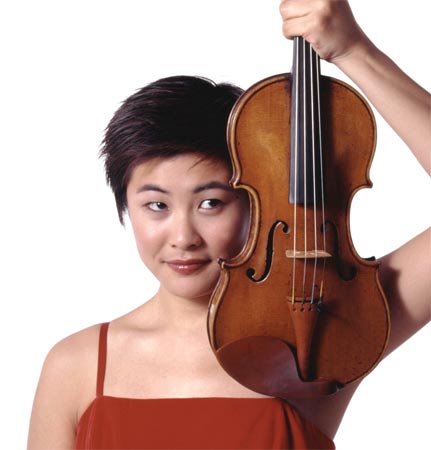 Violinist Jennifer Koh has, since even before this past Spring showed its face, been pretty much living out of a suitcase or two. Crisscrossing this country and a couple other continents, She’s been playing everything from Antonio Vivaldi to John Zorn. Just last week she was beautifully acquitting herself at Miller Theatre, in a performance of Kaija Saariaho’s Graal Theatre. December is about all the break she’s getting, too, before it starts all over again.
Violinist Jennifer Koh has, since even before this past Spring showed its face, been pretty much living out of a suitcase or two. Crisscrossing this country and a couple other continents, She’s been playing everything from Antonio Vivaldi to John Zorn. Just last week she was beautifully acquitting herself at Miller Theatre, in a performance of Kaija Saariaho’s Graal Theatre. December is about all the break she’s getting, too, before it starts all over again.
In the middle of all this came her newest CD on Cedille, Rhapsodic Musings, a collection of solo violin music almost all composed within the last ten years: Esa-Pekka Salonen’s Lachen Verlernt (2002), Elliott Carter’s Four Lauds (1984-2000), Augusta Read Thomas’ Pulsar (2003), and John Zorn’s Goetia (2002). It’s an intensely involving and personal listen, definitely not simple showy fare, and the recording is close and crystalline. Here’s a short video of Jennifer talking about the genesis of the CD:
I recently had the chance to ask Jennifer a few questions via e-mail, and her answers follow:
S21: You’ve got quite a wide repertoire at your command, but when it’s come to recordings you haven’t gone with much in the way of the grand war-horses. The Szymanowski 1st is about as close as you’ve come, the rest delving back into lesser-known gems by Menotti, Martinu, Bartok… And then most recently lots of contemporary (and usually living) American and European composers. The pieces you choose — Higdon, Ruggles, Harrison, Salonen, Carter, Zorn — while often incredibly beautiful aren’t the stuff of easy crowd-pleasers. I get a bit of this feeling of you truly being taken deeply by something in each of these works, and bringing them to people almost like an excited kid shares their latest amazing discovery to their friends or parents. Am I getting warm here? …
JK: I just want to play music that I believe in! This is true for music that is known or unknown, new or old. When I play a piece, it means I will have lived with it in a very intimate and intense way for a long time and ultimately, I want to spend my life with music that I love and find meaningful. If I discover a piece of music that I think is incredible but is not very well known, I do become fervently dedicated to it because I think it SHOULD be known to everyone and I want to share it with as many people as possible! In the end, I don’t think I’m that different from the next person. I’m just another member of society and I hope that if I find a piece of music to be compelling and interesting, then it will speak to other people as well.
S21: These past few CDs you’ve gone from violin and orchestra, to violin and piano, to just solo violin. I know this can’t go much further (unless you toss the violin and just clap and sing!), but was that increasing intimacy and focus at all intentional? Does it feel any different when you make a CD where you know you’re responsible for every moment of sound on there?
JK: Everything about “Rhapsodic Musings” was intense and personal for me from the initial inspiration point for the program to the recording process to the actual compositions on this CD. The idea for this CD came from a collective time of shock and loss and I wanted to focus the CD into a personal journey out of that collective experience. During this same period of time, I saw the violin that one of my mentors, Felix Galimir played while he was alive. Felix was a huge influence on me in so many ways especially because of the passionate relationship he had with the music that he worked on with the composers of his time which included Schoenberg, Berg and Webern. When I played on Felix’s violin in the shop, I felt he was back with me because I heard him in that violin. Violinists have very intense and intimate relationships with their instruments and it is almost impossible to separate the identity between violin and violinist because each lives in the other. I feel like my violin is a part of me and I chose a solo violin program for “Rhapsodic Musings” because I wanted to express that personal relationship between violin and violinist. (more…)
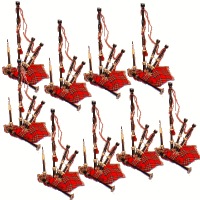 Just a few weeks ago over at our CD Review section,
Just a few weeks ago over at our CD Review section,  Julia herself will be tagging along to each performance; if you happen to spot this face in the crowd you might go and say hi & thanks to the woman who penned all this glorious madness. It’s all free and open to whoever makes it, so pack a lunch, put on those walking shows and have a great hike!
Julia herself will be tagging along to each performance; if you happen to spot this face in the crowd you might go and say hi & thanks to the woman who penned all this glorious madness. It’s all free and open to whoever makes it, so pack a lunch, put on those walking shows and have a great hike! Tuesday evening (27 Oct.) in Princeton’s Taplin Auditorium vocalists Sarah Paden, Anne Hege and Lainie Fefferman — otherwise known as
Tuesday evening (27 Oct.) in Princeton’s Taplin Auditorium vocalists Sarah Paden, Anne Hege and Lainie Fefferman — otherwise known as 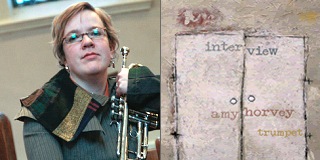 The next evening (28 Oct.), up and across the border to Montreal, Quebec, our tremendously-talented, trumpet-playing web pal
The next evening (28 Oct.), up and across the border to Montreal, Quebec, our tremendously-talented, trumpet-playing web pal  While online culture increasingly favors a posture of transparent, even mundane personhood, Igor Ballereau and Jody Pou buck this trend with the enigmatic netlabel
While online culture increasingly favors a posture of transparent, even mundane personhood, Igor Ballereau and Jody Pou buck this trend with the enigmatic netlabel 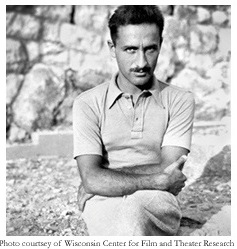 Given the rarity of records and performances of the music of
Given the rarity of records and performances of the music of 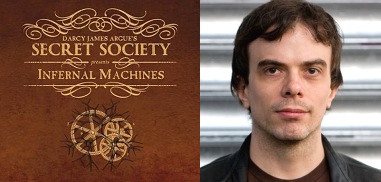 You can only keep a secret society secret so long, and with our old S21 pal
You can only keep a secret society secret so long, and with our old S21 pal 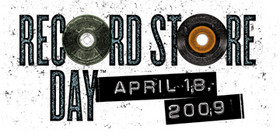
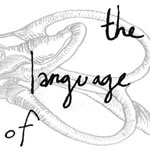
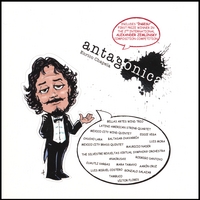
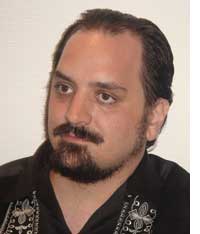 This is an exciting time for Chapela. He’s playing the guitar part in the premiere. Simultaneously, he’s working hard to finish a commission for the LA Philharmonic. “At first, I thought it would be too much to be the solo guitarist at the Brooklyn Philharmonic performances while trying to finish the piece for LA. But then I realized, who could ask for a better gig than this? Between practicing and writing, I told my wife to not expect to see me much for a couple of months!”
This is an exciting time for Chapela. He’s playing the guitar part in the premiere. Simultaneously, he’s working hard to finish a commission for the LA Philharmonic. “At first, I thought it would be too much to be the solo guitarist at the Brooklyn Philharmonic performances while trying to finish the piece for LA. But then I realized, who could ask for a better gig than this? Between practicing and writing, I told my wife to not expect to see me much for a couple of months!”